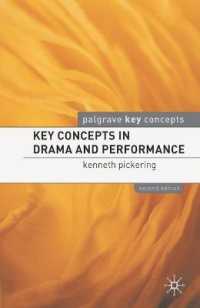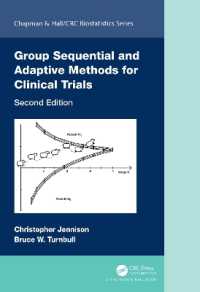Full Description
Anxious Homes is a study of the power that shapes the forms of the homes Chinese citizens strive for and the possible paths they may take to realize their home ownership dreams. Mengqi Wang discusses how the Chinese real estate industry functions in the everyday, welding aspirational middle-class families, especially migrant families, to the property-owning class and the urban growth machine. Urban housing was a socialist benefit in China until the market reforms and privatization in the 1990s. Today, most Chinese citizens consider homeownership a necessity rather than an economic privilege. Wang analyzes the making of homeownership ideologies through "inflexible demand" (gangxu) - a concept that real estate brokers, developers, homebuyers, and the government in China use to craft homeownership as indispensable for fulfilling dreams of urban citizenship. The ethnography shows that gangxu helps to articulate diverse attempts to accumulate value through housing at China's urbanizing city periphery, while giving shape to a housing-based, postsocialist right to the city. Anxious Homes argues that homeownership does not necessarily engender independence but suggests further inclusion of citizens within the dominant regime of accumulation.








